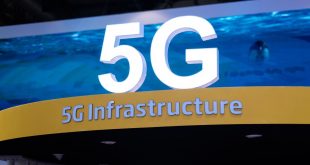For the first time, a study has assessed the impact of digital technology on the lives of patients with chronic diseases. It was conducted by the ICA patient association collective, in partnership with researchers from the Smart Objects and Social Networks chair at Institut Mines-Télécom Business School. The study provides a portrait of the benefits and limitations perceived by chronically ill …
Read More »Search Results for: Industrie du futur
Stack canaries: overestimating software protection
Android, Windows, Mac, Linux… All operating systems contain stack canaries — one of the most common forms of software protection. These safeguards that protect computer systems from intrusions are perceived as very effective. Yet, recent research carried out by EURECOM and the Technical University of Munich show that most stack canaries contain vulnerabilities. The results obtained through a project led …
Read More »The economy of promises, how to fall in love with a growth rate
Fabrice Flipo, Institut Mines-Telecom Business School This article was published in association with the “Does progress have a future?” series of conferences organized by the Cité des Sciences et de l’Industrie, from Tuesday 15 to 26 May 2018. Over a two-week period, groups of students, a panel of citizens and scientists, historians and philosophers shared their views and debated the …
Read More »Cybersecurity: high costs for companies
Hervé Debar, Télécom SudParis – Institut Mines-Télécom, Université Paris-Saclay The world of cybersecurity has changed drastically over the past 20 years. In the 1980s, information systems security was a rather confidential field with a focus on technical excellence. The notion of financial gain was more or less absent from attackers’ motivations. It was in the early 2000s that the first …
Read More »Campus Mondial de la Mer: promoting Brittany’s marine science and technology research internationally
If the ocean were a country, it would be the world’s 7th-largest economic power, according to a report by the WWF, and the wealth it produces could double by 2030. The Brittany region, at the forefront of marine science and technology research, can make an important contribution to this global development. This is what the Campus Mondial de la Mer …
Read More »Composite Materials: the race to keep going faster
In the world of materials, composites are currently undergoing a transformation that is just a significant as the plastics boom in the 1960s. To massively integrate these materials into high-volume production markets—automotive, aeronautics, rail, etc.—manufacturers must further reduce the time it takes to mold the parts. This complex goal is attainable by redesigning the materials’ composition and architecture, adapting the …
Read More »Will 5G turn the telecommunications market upside-down?
The European Commission is anticipating the arrival of the fifth generation in mobile phones (5G) in 2020. It is expected to significantly increase data speeds and offer additional uses. However, the extent of the repercussions on the telecommunications market and on services is still difficult to evaluate, even for the experts. Some believe that 5G will be no more than …
Read More »The European digital union
This issue of Réalités Industrielles is devoted to several subjects central to European Commission’s strategy, such as the data economy, the economic and social functions of online platforms, and cybersecurity. To build a Digital Single Market is to construct Europe’s future. Given the many crises facing Europe, it is more important than ever to project ourselves into the future …
Read More »Sea Tech Week: Key issues of a connected ocean
The sea is becoming increasingly connected, with the development of new real-time transmission sensors. The aggregated data is being used to improve our understanding of the role oceans play in climate issues, but several challenges must be considered: the development of autonomous sensors and the pooling of research on a global level. This was the subject of Sea Tech Week, …
Read More »The bitcoin and blockchain: energy hogs
By Fabrice Flipo and Michel Berne, researchers at Télécom École de Management. Editorial originally published in French in The Conversation France _______________________________________________________________________________________ The digital world still lives under the illusion that it is intangible. As governments gathered in Paris at COP21, pledging to reduce their carbon emissions to keep global warming below 2°C, the spread of digital technology continues …
Read More » I'MTech L'actualité scientifique et technologique de l'IMT
I'MTech L'actualité scientifique et technologique de l'IMT









